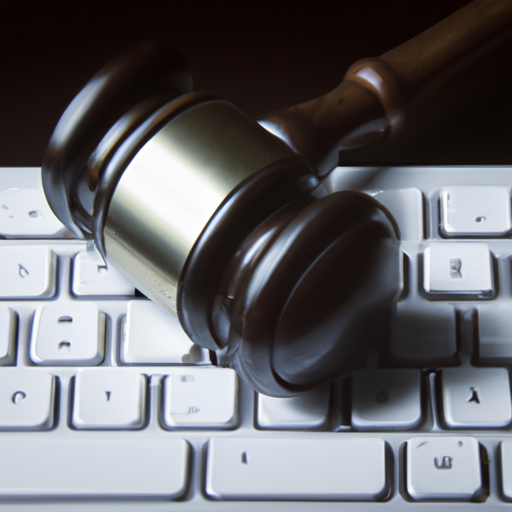In order to maintain a positive and inclusive online environment, social media hate speech regulations have become increasingly important. These regulations seek to address the issue of hate speech, discriminatory language, and harmful content that is prevalent on various social media platforms. By implementing these regulations, companies and individuals can ensure that their online presence is free from hateful and offensive content, allowing for a more productive and respectful online community. In this article, we will explore the significance of social media hate speech regulations and their impact on businesses and individuals alike. Additionally, we will address some frequently asked questions about this topic to provide a comprehensive understanding of its implications.
Overview of Social Media Hate Speech
Social media platforms have become an integral part of our society, providing users with a way to connect, share information, and express themselves. However, with the rise of social media, there has also been an increase in hate speech. Hate speech refers to any form of communication, whether it be written, spoken, or symbolic, that discriminates, threatens, or insults individuals or groups based on attributes such as race, religion, ethnicity, gender, sexual orientation, or disability.
The prevalence of hate speech on social media has raised concerns about its impact on individuals and society as a whole. It has the potential to incite violence, spread misinformation, and perpetuate discrimination. As a result, there is a pressing need for regulations to address this issue and ensure a safe and inclusive online environment.
The Need for Regulations
Hate speech on social media can have severe consequences, both for individuals and for society as a whole. It can contribute to the radicalization of individuals, incite violence, and perpetuate stereotypes and discrimination. Furthermore, hate speech can create a hostile online environment, where individuals feel unsafe and marginalized.
Regulations are necessary to protect individuals from the harmful effects of hate speech and to maintain a civil and respectful online discourse. It is important to strike a balance between freedom of speech and the need to prevent harm and promote equality. While freedom of speech is a fundamental right, it should not be used as a shield for hate speech that threatens the well-being and dignity of others.

Existing Social Media Hate Speech Regulations
Several countries have already implemented regulations to address hate speech on social media. For example, Germany enacted the Network Enforcement Act in 2017, which requires social media platforms to remove illegal hate speech within specified timeframes. Failure to comply with these regulations can result in significant fines for the platforms.
Other countries, such as France and the United Kingdom, have also introduced legislation to combat hate speech online. These regulations aim to hold platforms accountable for the content shared on their platforms and promote the swift removal of hate speech.
Legislation and Legal Frameworks
The legal frameworks surrounding hate speech vary from country to country. In some jurisdictions, hate speech is considered a criminal offense, while in others, it may be regarded as a civil matter or protected under freedom of speech laws. It is essential for businesses and individuals to be aware of the legal implications of hate speech on social media platforms.
In the United States, for instance, hate speech is generally protected under the First Amendment. However, there are limitations to this protection, such as when speech incites imminent violence or poses a direct threat to an individual or group. It is crucial to consult with legal experts to navigate the complex legal landscape concerning hate speech.

International Perspectives on Hate Speech
Different countries have diverse perspectives on hate speech and varying levels of tolerance for such forms of expression. Some countries prioritize the protection of freedom of speech, while others place greater emphasis on preventing harm and promoting equality.
For instance, European countries tend to have stricter regulations on hate speech, as they seek to combat historical and ongoing discrimination. On the other hand, the United States typically adopts a more permissive approach, prioritizing freedom of speech.
Understanding the international perspectives on hate speech is crucial for businesses that operate globally or have an international online presence. Compliance with local regulations and cultural norms is essential to avoid legal and reputational risks.
Platform Policies and Guidelines
Social media platforms play a significant role in addressing hate speech on their platforms through their policies and guidelines. These policies outline what types of content are considered prohibited and set the standards for user behavior.
Platforms like Facebook, Twitter, and YouTube have implemented measures to identify and remove hate speech. They rely on technology and human moderators to assess content and take appropriate action. However, the effectiveness of these measures varies, and there are ongoing debates about the transparency and consistency in content moderation.
Businesses should familiarize themselves with the policies and guidelines of the platforms they use for their online presence. Adhering to these guidelines helps ensure compliance and mitigate the risk of being associated with hate speech.
Challenges in Defining Hate Speech
Defining hate speech can be challenging due to its subjective nature and cultural context. What constitutes hate speech in one country or culture may be considered legitimate expression in another.
There is a fine line between hate speech and freedom of speech, making it difficult to establish clear boundaries. Differentiating between hate speech and legitimate political discourse or satire requires careful consideration of the intent behind the communication.
To navigate these challenges, legal experts can provide guidance on the prevailing legal standards and assist businesses in adopting policies that strike the right balance between freedom of speech and preventing harm.
Impact on Freedom of Speech
The regulation of hate speech on social media raises concerns about potential infringements on freedom of speech. While it is crucial to protect individuals from harm, it is equally important to ensure that legitimate expression is not stifled.
Balancing these competing interests requires careful consideration of the legal and ethical implications. Striking the right balance involves implementing regulations that are clear, proportionate, and consistent while providing space for open dialogue and the exchange of diverse opinions.

Reporting and Moderation Processes
Reporting mechanisms and content moderation processes are essential tools in combatting hate speech on social media platforms. Users play a critical role in identifying and reporting instances of hate speech, allowing platforms to take appropriate action.
Social media platforms rely on both technology and human moderators to assess reported content. However, the sheer volume of content makes the task challenging. Improving reporting mechanisms, enhancing algorithms, and providing better support to moderators are ongoing areas of focus for platforms.
Businesses should educate their employees about the reporting and moderation processes of the platforms they use and encourage responsible online behavior.
FAQs about Social Media Hate Speech Regulations
Q: Is hate speech always illegal?
A: The legality of hate speech varies depending on the jurisdiction. In some countries, hate speech is criminalized, while in others, it may be considered protected speech. It is essential to consult with legal experts to understand the applicable laws in your jurisdiction.
Q: Can social media platforms be held liable for hate speech?
A: The liability of social media platforms for hate speech depends on the legal framework in the relevant jurisdiction. In some countries, platforms may be held accountable for content shared by their users, while in others, they may enjoy certain legal protections. Consultation with legal experts can help determine the extent of platform liability.
Q: How can businesses protect themselves from being associated with hate speech on social media?
A: Businesses can protect themselves by adopting clear policies and guidelines that prohibit hate speech and promote a respectful online environment. It is also crucial to regularly monitor and moderate user-generated content and promptly address any instances of hate speech.
Q: What actions can individuals take if they encounter hate speech on social media?
A: Individuals can report instances of hate speech to the platform in question using the reporting mechanisms provided. They can also block and unfollow individuals who engage in hate speech. Additionally, individuals should consider making use of privacy settings and restrict their online presence to trusted connections.
Q: How can businesses stay updated on changing regulations concerning hate speech on social media?
A: Staying updated on changing regulations requires continuous monitoring of legal developments and consultation with legal experts. It is essential to establish a network of trusted resources, such as legal professionals, industry associations, and reputable news sources, to stay informed about the evolving landscape of hate speech regulations.
Remember, if you require legal assistance regarding hate speech regulations on social media, do not hesitate to reach out to our experienced legal team. A consultation can provide valuable insights tailored to your specific circumstances and help you navigate the complex legal landscape.
